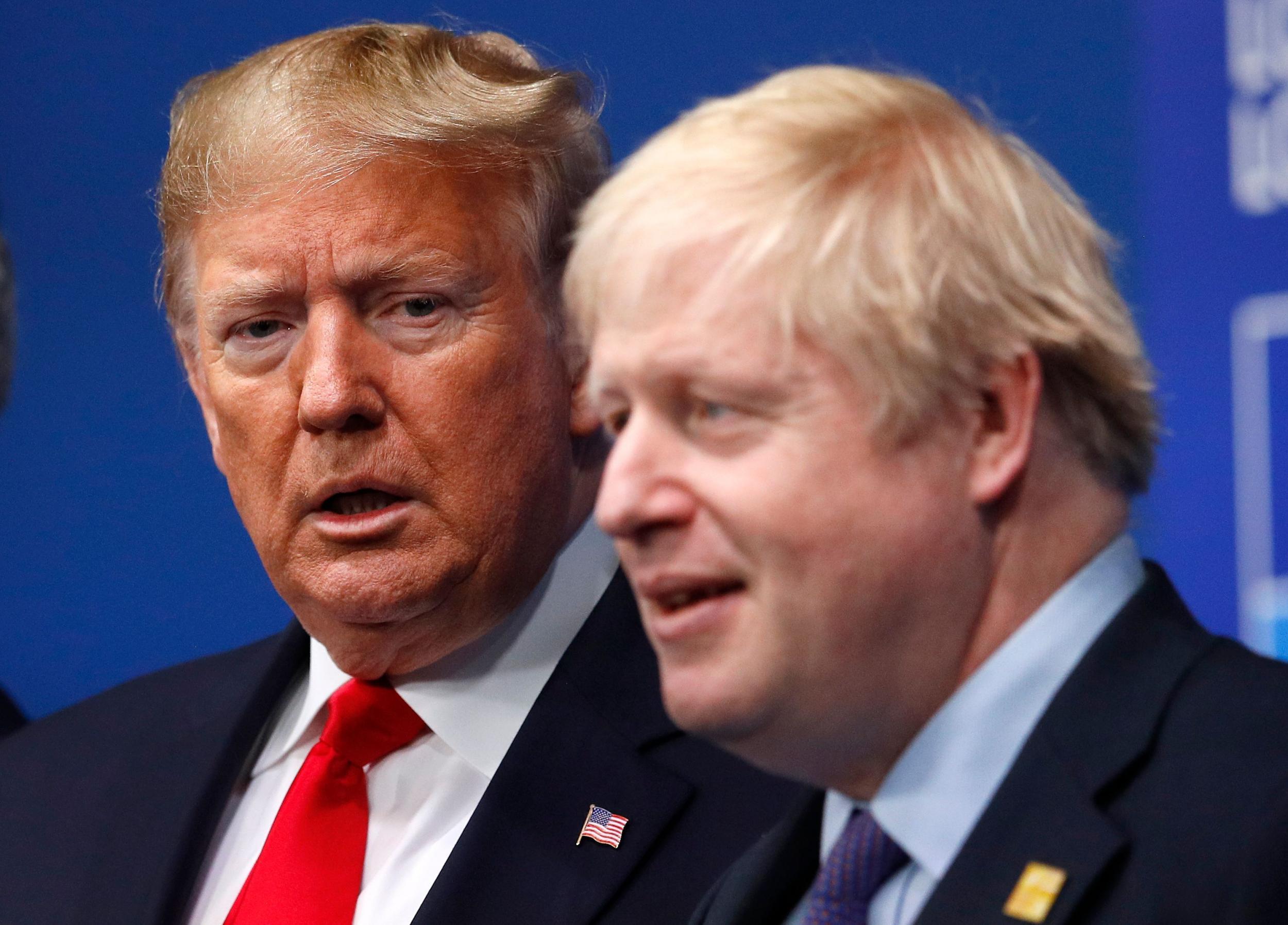If we really have a ‘special relationship’ with the US, why aren’t we working to beat coronavirus together?
The cabinet appears to be betting the house on Britain winning the global race for a vaccine – but that is a gamble with very high stakes, says Lisa Nandy


Your support helps us to tell the story
From reproductive rights to climate change to Big Tech, The Independent is on the ground when the story is developing. Whether it's investigating the financials of Elon Musk's pro-Trump PAC or producing our latest documentary, 'The A Word', which shines a light on the American women fighting for reproductive rights, we know how important it is to parse out the facts from the messaging.
At such a critical moment in US history, we need reporters on the ground. Your donation allows us to keep sending journalists to speak to both sides of the story.
The Independent is trusted by Americans across the entire political spectrum. And unlike many other quality news outlets, we choose not to lock Americans out of our reporting and analysis with paywalls. We believe quality journalism should be available to everyone, paid for by those who can afford it.
Your support makes all the difference.The world took a step forward yesterday, passing a resolution that shifts the dial on the chances of defeating Covid-19.
While attention has focused on the decision by the Chinese government to back an inquiry into the origins and handling of the Covid-19 pandemic, the world is inching towards a commitment to share information, research and data to aid the search for a vaccine. This progress includes the voluntary pooling and licensing of patents which could, if left unaddressed, prevent many countries accessing a vaccine at all and risk a second wave of infections across the world.
So far, the scramble for a coronavirus vaccine between countries has made the prospects of finding one far more difficult. The US decision to attack the World Health Organisation has made scientists nervous about sharing information across borders for fear of being pulled into a global political row which will heat up as we approach the US presidential election this autumn. The Trump administration has also aggressively pursued “exclusive access” deals with drug companies that would delay access to a vaccine for Britain and for poorer countries.
So far there is little sign the prime minister has a plan to address this. The cabinet appears to be betting the house on Britain winning the global race, but that is a gamble with very high stakes. Earlier this week Alok Sharma, the business secretary, boasted that Britons would have first access to a vaccine being developed by Oxford University – only to find this morning evidence emerging that a US company may be pulling ahead.
We are also facing another major obstacle. Our manufacturing capacity is so limited in the face of this challenge that we have relied heavily on China and India for personal protective equipment (PPE) and paracetamol and have searched around the world for ventilators. So far, the war of words between the US and China has effectively stalled global agreement on manufacturing and distribution. Neither attended a recent international pledging conference to raise funds for a vaccine. And the World Health Assembly resolution, which has begun to move us forward, was watered down, apparently at the request of the US with British support.
If the UK chooses not to step up at this moment, it will be a tragedy for our citizens and for the rest of the world. We are in a unique position to resolve this as permanent members of the UN Security Council, the G7, the G20 and the biggest donor to the World Health Organisation. The prime minister has made much of his close relationship with Donald Trump. If that relationship is to mean anything, it must be invoked now. But troublingly, the foreign secretary was recently unable to explain why the US had snubbed an invitation from Britain to attend our international vaccine pledging conference – or even confirm whether Britain had asked the US government to attend at all.
With the global death toll now more than 300,000, every day counts. There is just over three weeks to go until the G7 summit hosted by the US. If the prime minister does have the special relationship that he claims to have with President Trump, he needs to reach across the Atlantic in our global and national interest – and he needs to act now.
Lisa Nandy is the shadow foreign secretary and Labour MP for Wigan
Join our commenting forum
Join thought-provoking conversations, follow other Independent readers and see their replies
Comments